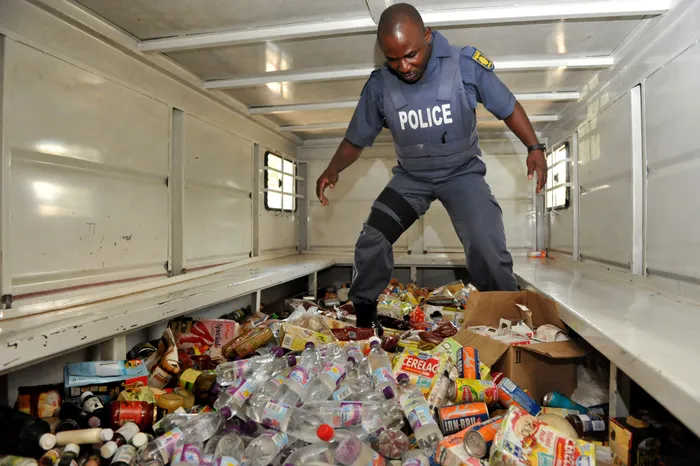Over 1 000 spaza shops registered in the Western Cape so far

The City’s Environmental Health Service has received at least one thousand applications for Certificates of Acceptability (COA) this week alone. pic file
Cape Town - More than 1 000 spaza shops have been registered in the Western Cape with just over 2 000 still outstanding.
President Cyril Ramaphosa called for spaza shops to be registered with a deadline to be reached by December 6, 2024, following the deaths of six children in Naledi in the North West due to contaminated food and others in recent weeks and months.
Mayco for Community Services and Health, Patricia Van der Ross said the City’s Environmental Health Service has received at least one thousand applications for Certificates of Acceptability (COA) this week alone.
The City has yet to indicate whether the number has increased since.
“The surge in applications follows the President’s announcement last week that spaza shops need to be registered, amid numerous food safety incidents around the country in recent months,” she explained.
“A COA is a legal document indicating that a food-handling establishment complies with the hygiene and food safety standards as outlined in the regulations governing the general hygiene requirements for food premises, the transport of food and related matters, R638 of 22 June 2018.
“Environmental Health Practitioners (EHPs) facilitate applications for Certificates of Acceptability, there is no cost associated with these applications.
“EHPs are mandated also, to conduct visits to business premises at least twice a year. Where non-compliance is found, more regular inspections are carried out until the problem is resolved.”

Van der Ross said in recent weeks, there have been two incidents in Cape Town that have sparked widespread interest, namely the makeshift butchery in Mfuleni, and the discovery of food that were past its sell-by date in Khayelitsha. Claims were that sausage was being produced out of bone meat which is used for preparation of dog food.
Van Ross later clarified the meat in the sausage contained no dog food following testing done by their EHP teams and said their investigations would continue.
The owners of Gupta Meats are facing a charge of contravention of the Food Stuff and Cosmetics Act in that they were allegedly illegally producing and operating a butchery without a certificate.
Eric Ntabazalila of the National Prosecuting Authority said the matter was before the court with the formal bail application taking place on December 2.
Earlier this week, Voice of the Cape radio station reported that Environmental Health Practitioner, Zachary Rudolph, of the Health Professions Council of South Africa (HPCSA) said between November 18 2024 and November 22 2024, 1 200 new applications for Certificates of Acceptability (COA) were received and that just over 3 270 were operating within the city.
Riana Geldenhuys, Manager: Communication and Marketing, Drakenstein Municipality said they are also heeding the call for registration with their spaza shops.
“Drakenstein Municipality’s records indicate that 139 spaza and house shops in the municipal area currently comply with the Municipality’s land use planning legislation. The Municipality has a by law and two policies in place that govern the spaza/house shop and informal trading space,” she explained.
“The Municipality will hold a further Council workshop on December 10 2024 to discuss a national by law dealing with township economy, which will be followed by public participation.
Councillor Stephen Korabie, Executive Mayor of the Municipality said while they encouraged registration, their focus will be to ensure that informal shops comply with laws that aim to protect the health and safety of the public.
“This includes having the necessary permits and refuse removal measures in place,” he said.
“Our Law Enforcement division has already been conducting joint operations together with the South African Police Service, national Department of Home Affairs, and health inspectors of the Cape Winelands District Municipality.
“As a result, expired food items and alcohol have been confiscated and undocumented foreigners arrested.
“We recognise the vital role that spaza and house shop owners play in the informal sector economy, but they need to be legal and deliver a safe service.“
Related Topics: